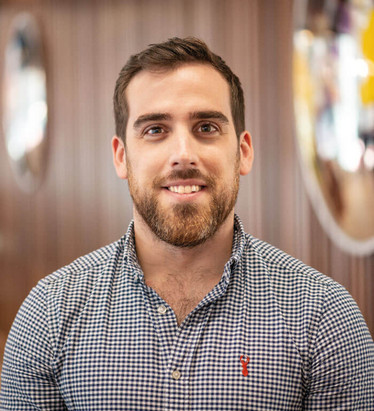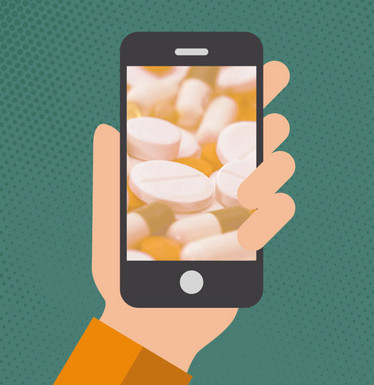
Staying Connected
Could digital lines of communication help curb medical nonadherence?
Prescribing medications is a relatively simple process, but it does not guarantee that the patient will adhere to the treatment. A number of reasons play into nonadherence – some of which we have explored in our feature, Packaging for All (click here). Here, we speak to James Burnstone, CEO of Elucid, and Job FM van Boven, Assistant Professor of Drug Utilization Research at the University Medical Center Groningen, about Pill Connect – a system designed by Elucid to both monitor and aid in compliance.
Why is medical nonadherence such a problem?

Job FM van Boven, Assistant Professor of Drug Utilization Research at the University Medical Center Groningen
Job van Boven: According to the Organisation for Economic Co-operation and Development (OECD), poor medication adherence in the EU contributes to 200,000 deaths and forces member states to cough up €125 billion each year to tackle the problem, which includes avoidable hospitalization, emergency care and outpatient visits. I am a researcher based in the Netherlands and the problem is evident. Around 65 percent of people take prescription medications at any given time and, with only 50 to 70 percent of these patients complying with their prescriptions, there is clearly a need for better support.
James Burnstone: The onus for poor compliance can’t be placed on patients alone. Numerous barriers can prevent patients from correctly complying with medication instructions. Complex dosing regimens, taste, and challenging routes of administration can all contribute to the problem and affect patient confidence. But the problem doesn’t stop there, health systems also impact patient behavior. If a doctor, for example, doesn’t foster a good relationship with their patients where there are clear lines of communication and adequate support provided, the likelihood of proper adherence declines.
What is Pill Connect?

James Burnstone, CEO of Elucid
Burnstone: Pill Connect consists of a smart bottle, a mobile application, and a monitoring platform. Patients who use the platform are only able to dispense individual doses through commands from a mobile application. Once downloaded, the application informs patients of their daily pill regime and sends them reminders to take their pill at set times during the day. For pills to be dispensed from the smart bottle, patients must respond to the reminder. This digital approach to medical adherence allows for the collection of measurable data, which can be used by doctors and administrators to build a clearer picture of their patients’ compliance and ascertain the factors that contribute to poor compliance, such as time or activity.
Our data collection isn’t only intended to help support healthcare professionals. Patients can view their previous dispensing data. We want to be able to leverage this data to develop more personal reminders for patients and help keep them engaged with their medical regimes.
In a climate where there is an increasing focus on the cost of medicines, Pill Connect could be of benefit to pharma. Pharma companies have to constantly justify the cost benefit of their treatments, particularly the more expensive ones. The more pharma knows about the actual patterns of adherence, the more they can do to support the healthcare sector at all levels. Intelligent pill bottles can, therefore, give companies a real competitive edge as they are able to make sense of trends in patient non-adherence even in the most critical areas.
The Pill Connect system also allows us to restrict dispensing based on the rules of the prescription. The bottle is locked outside of the prescription times to prevent abuse or accidental double dosing.
Clinical reminder fatigue, or the decrease in response rate to an increasing number of reminders is a significant problem in digital medical adherence. How is Pill Connect combating it?
Burnstone: We have an advantage in that we get real-time feedback from the patient’s interactions with their app and the smart bottle all of the time. Through their continued use of the application, we learn when patients are most inclined to take their medication and the times when their motivation seems to wane. Therefore, we only fire out reminders when they are needed. The clinical trial investigator or doctor can make a decision on what they want to do if the patient is not adhering. We don’t want to bombard patients and leave them feeling overwhelmed. Tailoring our reminders to their needs helps to prevent that.

What prompted your collaboration?
Burnstone: Though there are many digital adherence systems on the market, we want to test whether Pill Connect’s differences could help patients make meaningful changes to the behaviours associated with medical adherence. We wanted to get a scientific evaluation from experts in compliance and we were thoroughly impressed by the work carried out by Job and the rest of the team at the Medication Adherence Expertise Center of the Netherlands (MAECON), situated within the University of Groningen.
Van Boven: I was instantly interested in collaborating with James! I was intrigued to learn about and test the technical performance of Pill Connect and how well the technology would be accepted by patients. Together with my colleagues, Daan Touw and Tanja Zijp at MAECON – an interdisciplinary center focusing on medication adherence innovation and implementation – we have just completed the first trial with the Elucid pill bottle.
What’s next for your collaboration?
Burnstone: Our first trial showed us how Pill Connect would perform in the wild. What would happen if a patient left the pill bottle out in the sun for too long, for instance? We are working on improving our system and have further trials planned with industry, the UK’s National Health Service and MAECON.
After finishing my degree, I envisioned a career in science communications. However, life took an unexpected turn and I ended up teaching abroad. Though the experience was amazing and I learned a great deal from it, I jumped at the opportunity to work for Texere. I'm excited to see where this new journey takes me!



















